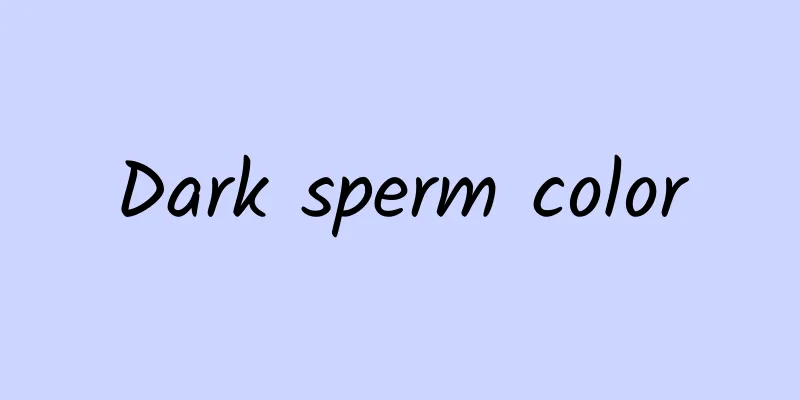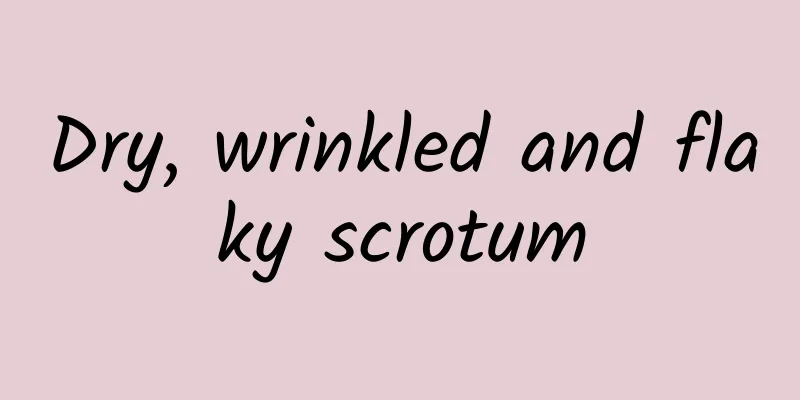How to treat allergic rhinitis? Traditional Chinese medicine has a solution!

|
Allergic rhinitis, also known as allergic rhinitis, is a reaction of the body to increased sensitivity to certain allergens. It can occur at any age, but is more common in young people. Some patients have no obvious sense of seasons, while some patients have more frequent attacks in winter and spring. It can also occur year-round or intermittently. 【Diagnosis points】 (I) Symptoms can be mild or severe, and the duration of the attack can be long or short. The main symptoms are sudden and paroxysmal nasal congestion, itching, sneezing, and a lot of clear nasal discharge. It can be used as a basis for diagnosis. (ii) During an attack, the nasal mucosa may be pale red or dark gray, and swollen, especially below the nose. Clear, thin nasal discharge may be seen in the nasal cavity, and the nasal mucosa may return to normal during intermittent periods. However, patients with a long history of illness and more severe reactions may have extremely pale and swollen nasal mucosa, and even polyp-like changes or nasal polyps may be seen in the nasal mucosa. (III) Differentiate this disease from colds. Colds are usually caused by a history of infection, with a gradual onset and a slow disappearance, requiring several days to recover. However, systemic symptoms are more severe, including fever, chills, headache, sore limbs, etc. The nasal mucosa is red, swollen and congested, and the nasal discharge changes from clear to sticky and purulent. 【Treatment based on syndrome differentiation】 (I) Key points of diagnosis The occurrence of this disease is often related to organ dysfunction, with damage to the lungs, spleen, and kidneys as the main causes. The disease is mainly in the lungs, and its root is in the spleen and kidneys. (II) Treatment principles It warms and nourishes the kidneys, dispels wind and cold. If the spleen is deficient, it replenishes qi and strengthens the spleen. If the kidney is deficient, it warms the lungs and does not allow the kidney to absorb qi. (III) Treatment by classification 1 Lung Qi is weak, feeling cold Symptoms: Itchy nasal cavity, frequent sneezing, followed by a large amount of clear nasal discharge, decreased sense of smell, general fatigue and laziness, shortness of breath and low voice, or spontaneous sweating, pale complexion, pale tongue with white coating, weak pulse. The nasal cavity mucosa is pale, and the nose is enlarged. Treatment: Warming and nourishing the lungs, dispelling wind and cold Prescription: Yupingfeng Powder plus Cang'erzi Powder with modifications (Note): This type refers to newly diagnosed allergic rhinitis with symptoms of exogenous wind and cold. Therefore, the treatment should first clear the external symptoms, and after the external symptoms are cleared, consider kidney-tonifying therapy. 2 Lung and spleen qi deficiency, dampness and nasal discharge Symptoms: nasal congestion and swelling, itchy nose and sneezing, clear and dripping nasal discharge, dull sense of smell, frequent attacks, dizziness, shortness of breath and fatigue, fear of cold, drowsiness in the limbs, poor appetite and loose stools, pale or pale and fat tongue, tooth marks on the edges of the tongue, white fur and weak veins. Treatment method: Strengthen the spleen and replenish Qi, nourish the lungs and replenish Qi. Prescription: Use Sijunzi Decoction with added ingredients. 3 Kidney Qi deficiency and lung loss of warmth Symptoms: Itchy and uncomfortable nose, continuous sneezing for a long time, clear mucus that is difficult to stop, worse in the morning and evening, allergic rhinitis is mostly perennial, usually afraid of wind and cold, even afraid of wind and cold around the head, back, neck and shoulders, cold limbs, pale complexion, lack of energy, or soreness of waist and knees, premature ejaculation, clear and long urination, frequent urination at night, or physical weakness, dizziness, tinnitus, forgetfulness and insomnia, or fever in the five hearts, pale tongue and deep and thin pulse. Treatment: For deficiency of kidney yang, warm and nourish kidney yang, absorb qi and calm the spleen; for deficiency of kidney yin, nourish kidney yin Prescription: For those with partial deficiency of kidney yang, use Wenfei Zhiliu Dan. For those with partial deficiency of kidney yin, use Zuogui Wan with added ingredients. 4 Lung Meridian Heat Stagnation Type Symptoms: nasal congestion, soreness and discomfort, frequent sneezing, clear nasal discharge or itchy throat, hot taste in the mouth, stringy or slippery pulse, red tongue with white coating, swollen inferior turbinate, slightly reddish to dark purple in color. Treatment method: Clear and promote lung qi. Prescription: Magnolia Lung Clearing Drink Allergic rhinitis is closely related to low immunity. Staying up late for a long time, overwork, lack of rest and lack of exercise are one of the main causes of the disease. Active outdoor sports, physical exercise, especially swimming, are very helpful for the prognosis. However, those with weak kidney yang and weak lung defense qi should not swim in a low water temperature environment. |
<<: How should allergic rhinitis be treated better?
>>: Can eating bull penis make your penis bigger? How to make your penis bigger
Recommend
Which part is best for men to do moxibustion?
Where is the best place for moxibustion for boys?...
Don't be careless if sperm leaks out of a man's urine!
Normally, if a man is in a healthy state, the col...
There are small bubbles on the glans
The glans can be regarded as the most sensitive a...
What does impotence mean?
What does impotence mean? In recent years, the wo...
Prostatic cystic nodules
We often hear that many people develop prostate d...
What are the symptoms of redness and swelling of the foreskin of the penis?
The foreskin of the penis is very embarrassing, b...
What causes itchy glans?
The structure of the male penis is very complex. ...
Lycopene - the loyal defender of the prostate
Lycopene is a nutrient required by humans. It is ...
How to ejaculate, several ways for men to ejaculate
Ejaculation is a response to male orgasm and is a...
Don't worry about hair loss or gray hair, four traditional Chinese medicine treatments can give you thick black hair
Everyone loses hair, especially when washing hair...
How to care after circumcision
When men choose to have a circumcision, they must...
Why do men lose their hair? It's mostly due to eating too much of this food
According to the survey results of relevant depar...
Can coriander improve sexual performance? The answer is this
I don't know when coriander came into people&...
Why do I feel my testicles are cold?
In fact, the temperature of the testicles is gene...
Too much masturbation makes the glans sensitive
In life, many men have a particularly bad habit, ...









